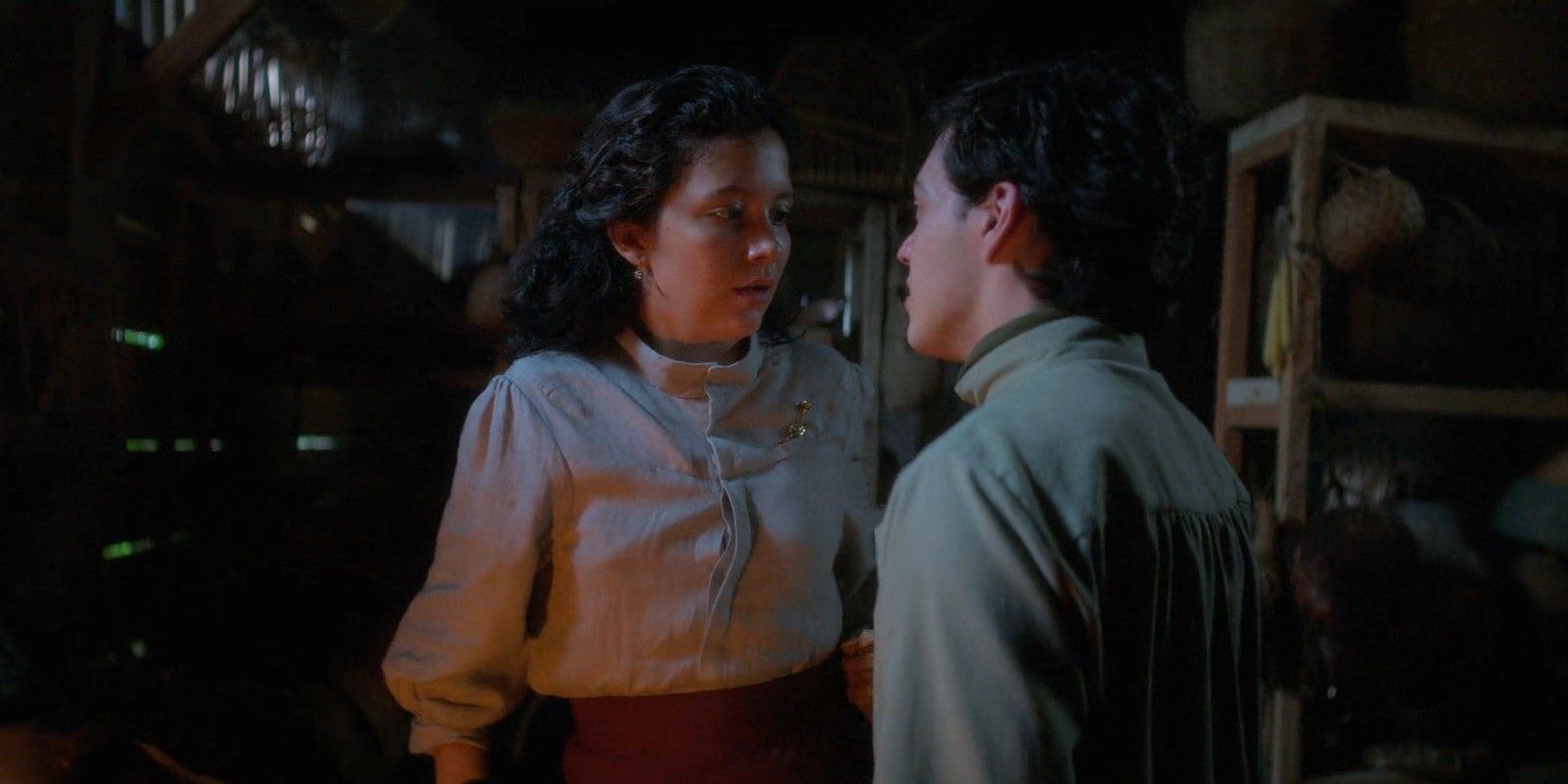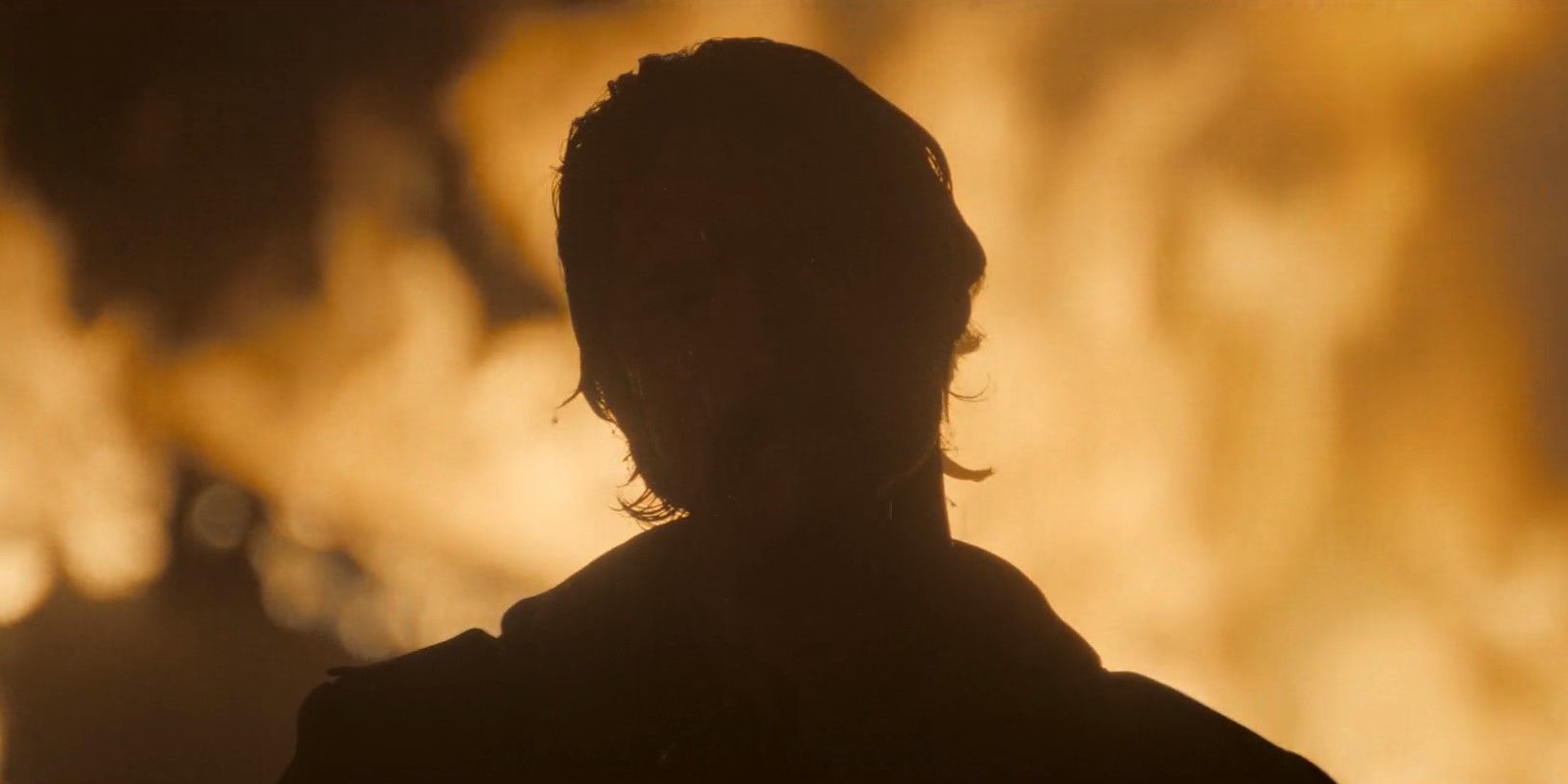Warning! This article contains potential SPOILERS for One Hundred Years of Solitude season 2.Netflix’s adaptation of One Hundred Years of Solitude, the classic novel by Gabriel García Márquez, had an ending that was just as confusing and metaphorical as the book. One Hundred Years of Solitude follows the Buendía family and their life in the fictional Columbian town of Macando across several generations. Their story is also sprinkled with bits of magical realism, supernatural events and moments that predict the future. Reviews of One Hundred Years of Solitude have praised the show’s ability to translate that magic to live-action and retain its importance both visually and narratively.
Quite a few things happened in the final episode of One Hundred Years of Solitude season 1. Two members of the Buendía family died, Colonel Aureliano finally faced the firing squad that was hinted at in the first moments of the show, and some major setup for One Hundred Years of Solitude season 2 happened. In all the excitement of the finale and the intricate and interconnected storylines, some of the show’s more important moments may not have been entirely clear. Even if they were clear, there’s always more to One Hundred Years of Solitude than meets the eye, so it never hurts to take a closer look.
Why Was José Arcadio Murdered & Who Killed Him?
José Arcadio’s Killers Were Never Discovered, But They May Have Been The Farmers He Stole From
In a sudden twist in One Hundred Years of Solitude season 1’s ending, José Arcadio was murdered in his home. Unfortunately, as the narrator explained, José Arcadio’s murder is the only unsolved mystery in Macando’s history, so no one knows definitively who killed him. However, it does seem very likely that he was killed by one of the farmers he stole land from. Just before José Arcadio was killed, he had taken money from some farmers and told them to get their sons to “stop playing soldier” so they could pay him, and it’s not a stretch to imagine they were angry with him.

Related
30 Best TV Shows On Netflix Right Now (December 2024)
From classics like Suits and Seinfeld to twisty sci-fi like Stranger Things, the best shows on Netflix have something for everyone.
José Arcadio’s death also highlights a recurring theme in One Hundred Years of Solitude. Even though he had given up his womanizing ways and returned to his home, he couldn’t outrun his past mistakes, and no one in the Buendía family could. Eventually, the pain he inflicted on others came back to haunt him, and José Arcadio had to pay with his life.
Why Aureliano José Wanted To Sleep With Amaranta
The Buendía Family’s History Is A Never-Ending Cycle Of Incest & Pain
Somewhat surprisingly, Aureliano José, Arcadio’s son, fell in love with Amaranta at the end of One Hundred Years of Solitude, despite the fact that she was his aunt. Incestous relationships were very common in the show, as José Arcadio Buendía and Úrsula were cousins before they were married, but it still came as a bit of a shock that Aureliano José wanted to sleep with his aunt. Aureliano José’s desire to have an incestous relationship was because One Hundred Years of Solitude is largely a story about how the past can repeat itself in a never-ending cycle.
Just as José Arcadio Buendía fell in love with Úrsula despite the warnings they received about having an incestous relationship, Aureliano José also fell in love with Amaranta despite her warnings. While One Hundred Years of Solitude does somewhat confirm the idea of history being a repeating cycle, it also has critiques for that idea. Aureliano José and Amaranta may have been more inclined to start an incestous relationship because of their family’s history, but Amaranta also refused. She broke the cycle, and didn’t give birth to more cursed children with her nephew.
What The Yellow Flowers At José Arcadio Buendía’s Death Mean
Yellow Represents Death, Change, & Destruction In One Hundred Years Of Solitude
When José Arcadio Buendía finally died after his years-long madness in One Hundred Years of Solitude, it rained yellow flowers throughout Macando. There’s no shortage of supernatural events in the show, but every instance of magic in One Hundred Years of Solitude has a deeper meaning, and this is no different. The yellow flowers that rained down at José Arcadio Buendía’s death represent death, change, and destruction. The yellow flowers also signal the future of One Hundred Years of Solitude. Just after the flowers fell, Colonel Aureliano began his attack on Macando, which was one of several significant changes for the town.
Why Aureliano Attacks Macando & How He Fulfills One Hundred Years Of Solitude’s Omens
Aureliano Was Consumed By War & Ideology, Which Turned Him Into The Monster Úrsula Feared
When José Arcadio Buendía first married Úrsula, she worried endlessly that she would give birth to a monster. Úrsula originally thought her child would be a monster because of some birth defect, and she checked all her children to make sure they didn’t have tails like pigs. When Aureliano attacked Macando, he became the monster Úrsula feared giving birth to without even having a pig’s tail. It’s not entirely clear in One Hundred Years of Solitude how Aureliano became a monster or why Úrsula thought he was one at all, but the reason he attacked Macando explains it all.
When Aureliano attacked Macando, he became the monster Úrsula feared giving birth to without even having a pig’s tail.
Macando had been experiencing peace since José Raquel Moncada began governing the town, even though he was a member of the Conservatives. Conversely, Aureliano had only grown more violent in the years since the Colombian civil war started, and he had continued his rebellion long after the Liberals had wanted to sign a peace treaty. Aureliano attacked Macando simply because it was ruled by a Conservative; he didn’t want to help the people there, he just wanted to hurt the people he hated and pad his own ego in the process. Any man who would sacrifice his family’s peace for his own pride is a monster.
What’s Happens After Aureliano’s Attack On Macando In One Hundred Years Of Solitude
Aureliano Eventually Signs The Peace Treaty & Macando Is Destroyed In A Few Generations
The ending of One Hundred Years of Solitude was very far from the ending of the original novel, and it’s also not the ending of the entire series. Netflix has confirmed that One Hundred Years of Solitude will be released in two parts, meaning there are eight more episodes on the horizon to finish out the story of Macando and the Buendía family (via Tudum). Some viewers may wonder what One Hundred Years of Solitude season 2 has in store, and the novel has some answers about what comes after Aureliano’s attack on Macando.
Eventually, Aureliano’s attack on Macando is successful. He and his rebels take control of the town, and they depose José Raquel Moncada. Aureliano then gives back all the land José Arcadio stole, replaces the Conservatives’ laws, and agrees to execute Moncada against Úrsula’s wishes, and despite Moncada telling him that he has become the very tyrannical leader he set out to depose. Years later, Aureliano agrees to sign the peace treaty and lives out his days making jewelry. One Hundred Years of Solitude then examines the remaining members of the Buendía family, all of which end in tragedy.
The True Meaning Of One Hundred Years Of Solitude Season 1’s Ending Explained
One Hundred Years of Solitude is one of the most important novels in the Spanish language, largely because of its metaphorical messages and rich themes. The novel touched on every topic, from generational trauma to the role ideology plays in the power struggles and civil wars and the history of Latin America. As such, it has been analyzed endlessly since it was published in 1967, and explaining the deeper meanings of the entire text is worthy of a dissertation. However, there are some major recurring themes of One Hundred Years of Solitude that shine through quite clearly in Netflix’s show.
One of the biggest themes of One Hundred Years of Solitude is that it examines and interrogates the idea that history is cyclical, and that fatalism – the idea that history’s ending has already been written and there is no avoiding a predetermined outcome – rules Latin America. Many of the things that happen in One Hundred Years of Solitude seem destined, especially since the story is presented as the prescient writings of Melquíades, but they’re not. Several different characters – perhaps most notably Arcadio when he was told to surrender – were given chances to change their fates, yet they all refused.
The notion of generational trauma both enhances One Hundred Years of Solitude’s message about history repeating itself and complicates it, as the line between what is destined and what is changeable blurs significantly.
One Hundred Years of Solitude also examines generational trauma quite closely. Almost every generation of the Buendía family suffered because of the previous generation’s sins. José Arcadio Buendía and Úrsula suffered from their parents’ disapproval, which led them across the mountains. José Arcadio was ignored by his father in favor of his laboratory, and he in turn ignored Arcadio, his son with Pilar. The notion of generational trauma both enhances One Hundred Years of Solitude‘s message about history repeating itself and complicates it, as the line between what is destined and what is changeable blurs significantly.
The last major objective One Hundred Years of Solitude set out to accomplish was providing an explanation for the cycles of violence many Latin American countries like Colombia experience. Through Colonel Aureliano, One Hundred Years of Solitude shows that war is something people get used to, and that ideology is the main cause of widespread suffering. The ideological differences between Conservatives and Liberals started the civil war, and Aureliano’s disdain for both ideologies continued it well past its end point. One Hundred Years of Solitude is incredibly dense, however, so there are plenty of ways to interpret its ending.






